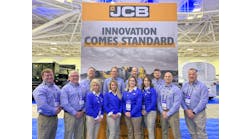J. Irwin Miller, who guided Cummins Engine Co. to international prominence, died last week at the age of 95.
Miller, who became Cummins’ general manager in 1934 at the age of 25 and went on to become president and chairman of the board, was also a philanthropist and social activist whose influence extended far beyond the engine industry.
Miller built Cummins from a family business into a Fortune 500 company with more than 25,000 employees in 131 countries and more than $6 billion in annual sales. He was also an architecture enthusiast, whose Cummins Engine Foundation paid millions of dollars in fees for some of the country’s top architects to design public buildings in his hometown of Columbus, Ind., south of Indianapolis, earning the small city the nickname “the Athens of the prairie.” Six of the buildings that resulted from this effort are national historic landmarks.
Miller played a significant role in the civil rights movement in the 1960s. As president of the National Council of Churches, from 1960 to 1963, he shaped the council into a strong supporter of the movement, and helped organize the 1963 civil rights march on Washington, and the National Conference on Race and Religion.
Miller’s influence extended internationally. He advised president John F. Kennedy and later South African president Nelson Mandela. Esquire magazine ran his profile on the magazine’s cover with the headline: “This man ought to be president of the United States.”
According to many who knew him, Miller practiced what he preached in the Cummins workplace. “He continued to push others in management to ensure that employment for nonwhites was meaningful and not merely tokenism,” said Cummins chairman and CEO Tim Solso. “He felt that business should be the instrument of social reform and change.”
Miller was also a visionary in the engine industry. When he assumed the presidency of Cummins in 1945, he guided the direction of the company to come up with new diesel technology, even at the risk of obsolescing the company’s existing product line. He also directed the company to develop a national network of independent distributors to enhance customer relationships. Under this model, Cummins sales increased from $20 million in 1946 to more than $100 million in a decade.
Miller served on dozens of other boards and committees including the Ford Foundation, Chairman of the Special Committee on U.S. Trade with Eastern Europe and the Soviet Untion; and the Carnegie Institute of Washington.
Miller is survived by his wife, Xenia, daughters Margaret, Catherine and Elizabeth, and sons Hugh and William.




